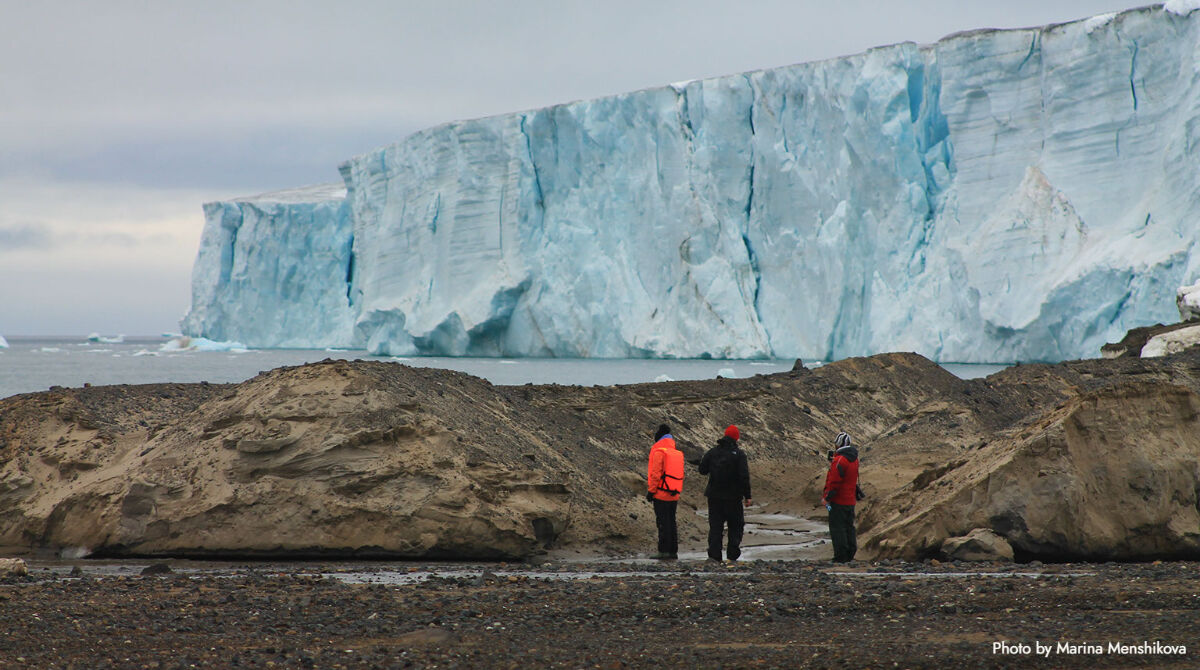Ukrainian war, because scientific projects in the Arctic are at risk

Scientific projects in the Arctic are in limbo and their progress is threatened. Indeed, Russia becomes more isolated from the world due to its invasion of Ukraine. The deepening of Axios
The effects of the war in Ukraine are keenly felt by scientists working in the Arctic.
In fact, the summer research season is about to begin in the region, reports Axios .
From the International Space Station (ISS) to Mars, the war in Ukraine had already jeopardized space collaboration with Russia. Until a few weeks ago, the country was considered indispensable to face the challenges of the great space exploration programs.
All of this is particularly felt in the Arctic region as well.
Last week the Arctic Observing Summit , a biennial meeting that brings together internationals who monitor how climate change is affecting the Arctic, ruled out the participation of scientists from Russian institutions and organizations, Hakai reports. It is the first time the committee has taken such a position since its work began in the years following the Cold War, the newspaper said.
In addition, last month, seven of the eight members of the Arctic Council , whose competencies include cooperation in research on sustainable development and environmental protection of the Arctic, suspended all activities with Russia, the eighth member of the council and current president. , remembers Axios .
According to Axios , existing science projects are under stress and war may already shape the future of polar science.
All the details.
THE EFFECTS OF THE SANCTIONS
As Axios recalls, science projects and collaborations are suspended around the world as sanctions and breaking ties with Russian research institutes prevent scientists in the United States, Europe and elsewhere from working with their colleagues in Russia.
But the shockwaves of the war are going beyond the meetings of the scientific community. Across the Arctic, collaborations with Russian scientists to study polar bears, whales, walruses and more are all frozen.
The war in Ukraine has brought disorder and uncertainty to a scientific community where international collaboration is vital, said Maribeth Murray, executive director of the Arctic Institute of North America at the University of Calgary in Alberta. Russia, which controls 50% of the world's Arctic coast, is a key partner in Arctic science. “I can't name a field they're not involved in,” says Murray.
THE KEY ROLE OF RUSSIA IN THE ARCTIC
Access to that land and sea alone makes Russia a key partner for international research on biology, ecology and conservation.
Additionally, scientific collaborations provide key insights into the effects of climate change, ocean health and geology, and underpin cooperation between the United States, Russia and others in the geopolitical hotspots of the Arctic and Antarctica.
The country is also home to most of the Arctic permafrost, and concerns have grown in recent years over the pace and extent of melting and an increase in Siberian fires.
SCIENTIFIC PROJECTS IN THE ARCTIC ON STAND-BY
Urgent projects to understand the fires in the Arctic, conducted under the auspices of the Arctic Council, are in some kind of limbo at the moment.
THE EFFECTS OF A BREAK
But for the effects of this geopolitical situation it will all depend on the duration over time.
While the impact of missed research opportunities will increase over time, a months-long hiatus is likely not going to be particularly harmful according to Malte Humpert, senior researcher and founder of the Arctic Institute .
At Axios Humpert compares the situation in the Arctic with what companies faced at the start of the Covid pandemic, saying the Arctic Council is wondering: "How do you keep working when the world enters a new 'normal? '? "
AND THOSE OF A PROLONGED DELAY
However, a longer delay could be much more impactful, the researcher points out.
"A 'hiatus' of a few weeks or months is one thing, but how will this work be organized and continued if the [Arctic Council] remains dead for years?" claims to Axios Humpert.
He notes that much of the scientific and political work within the council could be transferred to other organizations and universities if tensions continue to rise. "I think, over time, new avenues will emerge for carrying out research in the Arctic outside the auspices of the Arctic Council," concluded the founder of the Arctic Institute.
ANOTHER SITUATION IN ANTARCTICA
At the other end of the Earth, Antarctica is also dominated by scientific activity.
But it is too early here to determine the effects of the war on research in the region as it heads into winter and research curtailment. This is the opinion of Alan Hemmings, polar specialist and adjunct professor at the Gateway Antarctica Center for Antarctic Studies & Research at the University of Canterbury in Christchurch in New Zealand.
According to Hemmings, the great international scientific programs on Antarctica could continue in a very similar way to what was witnessed with the ISS.
This is a machine translation from Italian language of a post published on Start Magazine at the URL https://www.startmag.it/innovazione/guerra-ucraina-a-rischio-i-progetti-scientifici-artico/ on Sun, 17 Apr 2022 05:52:23 +0000.
